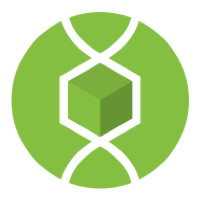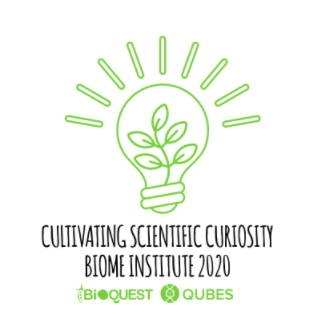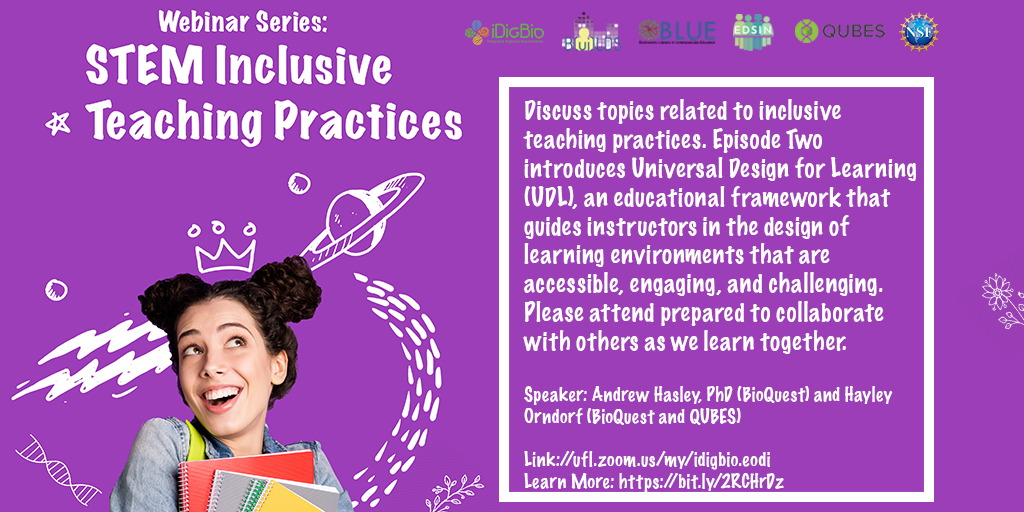
These weekly, mini-Newsletters were intended to provide resources to support the community during the rapid, nationwide transition to faculty completing courses online. As the semester closes down, we want to reflect on the successes of the last few months, and think about next steps as we plan for fall. Please continue to let us know how QUBES can support the community.
Next Steps for the Teaching Quantitative Biology Online Community

The Teaching Quantitative Biology Online site was launched on March 12, 2020 to support faculty in the rapid transition to remote teaching, providing a community forum, where faculty could share resources, ask questions and find useful information as institutions around the country shifted abruptly to remote teaching in response to the COVID 19 pandemic.
The QUBES newsletter was published weekly to keep the community informed of resources and opportunities in support of the transition to emergency online teaching, using resources gathered through this site or shared with us by our partners.
This crisis has demonstrated the importance of community, even as our most familiar forms of community interactions have been restricted. As faculty around the country, and around the world, rose to the challenge of revising courses and adapting to new teaching conditions, the ability to ask for help from the community and use OERs generated by community members has made the task a little easier. We are grateful to all the volunteers who supported the community with their time and shared educational resources.
As we move forward into online Summer and uncertain Fall teaching situations, QUBES and BioQUEST will continue to support the community with resources, information, and opportunities. The newsletter will return to monthly publication, and the Teaching Quantitative Biology Online site will continue to welcome new members and share resources for online teaching. We invite you to join the group, contribute to the collections, and share information through the forum.
Thank you for being a part of our community. Stay safe and healthy.
QUBES & BioQUEST Staff
PS Suggestions for how we can better support you? Post in the Teaching Quantitative Biology Online forum, or use the “Wish List” (the lightbulb icon in the left hand menu).

Become a BIOME Fellow! The Biology and Mathematics Educators (BIOME) Institute 2020
Become a BIOME Fellow! BioQUEST and QUBES are offering the BIOME Institute, an online, sustained, community-based professional development experience to support faculty interested in using undergraduate research experiences (UREs) to improve student success, both in person and online. Explore URE models from lecture based activities to internships in the Summer Launch, and collaborate with peers in the Fall working groups to generate a well designed implementation plan for your URE.
Who should apply?
Individuals from all biological disciplines, as well as quantitative, physical and social sciences will find the Institute valuable. Disciplinary and interdisciplinary institutional teams are encouraged to apply. Future faculty are welcome and are encouraged to partner with a faculty member at their institution. Substantial scholarships are available to defray registration costs.
Institute Dates
Summer Launch: July 27-August 7
Fall Working Groups: September 7-November 20
Application deadline: June 15. For more information, visit the BIOME Institute website.
Join the STEM Project Leaders Inclusivity NEtwork (SPLINE) Program

What is SPLINE?
- A network of leaders of STEM education reform projects or initiatives,
- A place to consider how diversity, equity, inclusion, and UDL intersect with open education,
- A community of peer support; a place to bounce ideas, get feedback, and brainstorm,
- A safe place to talk about the hard stuff!
- A late-summer program of one hour weekly synchronous meetings supplemented with an online platform for discussions, material collections, and collaborative work,
- A chance to apply best practices in Inclusivity and Universal Design for Learning to your resources or practices, with guidance from experts and peers,
- Improve one thing, and build confidence and momentum. Take a bite of the elephant.
What are the benefits?
- Clear evidence that your project is trying to reach the broadest range of students and faculty,
- Guidance and expertise,
- A participant stipend of $500 and a title reflecting the commitment (SPLINE Scholar),
- You bring experience in some aspect of the broad range of diversity, equity, inclusion, and universal design issues - get credit for sharing your hard-earned wisdom in a professional setting,
- An offer of continued support into the fall to expand your work across your project,
- An offer to support a QUBES Faculty Mentoring Network that leverages your work to reach more faculty/students with your improved resources.
I'm intrigued, but also over-committed and tired, and I have questions...
How did we guess? :-) SPLINE will be intentionally small and we will tailor our activities to the needs of the group. Thus, we'd love to have a conversation to answer your questions, and to help us shape a program that meets the needs of the community of STEM Education reformers.
Apply here by June 8. Email Jeremy Wojdak (jmwojdak@radford.edu) with questions, and click here for the full flyer to share with your networks.

Please join us on May 13, at 3:00 pm ET at this Zoom Link.
Episode Two will introduce Universal Design for Learning (UDL), an educational framework originally developed by CAST that guides instructors in the design of learning environments and educational materials that are accessible, engaging, and challenging for all students. This episode will also offer attendees the opportunity to practice identifying and applying UDL principles to classroom activities. As this episode is designed to be interactive, please attend prepared to collaborate with others as we learn together.
Members of the QUBES team are participating in some re-imagined conferences that will be happening through the QUBESHub. Members of the QUBES team are always looking to meet others who have a passion for quantitative biology education. Reach out so we can help you gather your collaborators, move projects forward, and continue to move quantitative biology forward. Connect with us by submitting a support ticket

From left to right: Sam Donovan (Director of OER), Carrie Diaz Eaton (Director of QUBES Consortium), Kristin Jenkins (Director of BioQUEST), Drew LaMar (Director of Cyberinfrastructure), and Jeremy Wojdak (Director of Professional Development).
Do you have a product or result from a QUBES sponsored activity? Help us measure our success by sharing your product or result with QUBES. Learn how to cite QUBES.

Call for Fall 2020 Faculty Mentoring Networks
Faculty Mentoring Networks (FMNs) are long-term, low-intensity professional development opportunities hosted through QUBES. An FMN brings a small group of like-minded educators together to discuss pedagogy; share resources; adapt, implement, and share teaching materials; and create a community around a given topic. FMNs can broaden the impacts of your project, click here to see how!
We are currently recruiting for Fall 2020 FMNs with commitments needed by June 1. If you are interested in running one, please contact Deb Rook soon!
|